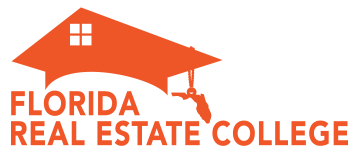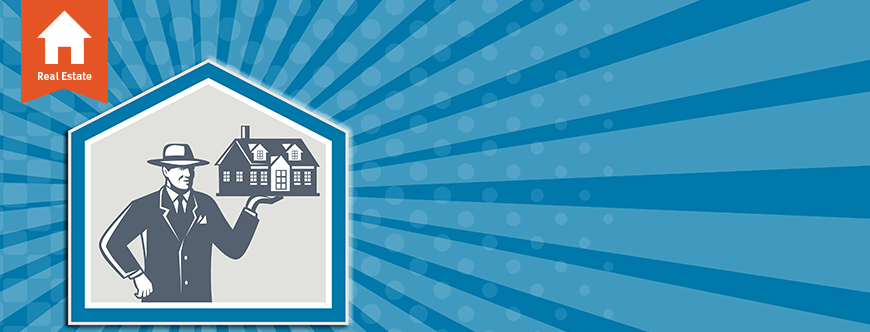
South Carolina real estate license is a state-wide certification that permits you to be a licensed broker or salesperson in the state. Before you can receive your license, all real-estate agents must take a series or courses and pass an exam.
To get your south carolina real estate license, the first step is to complete a pre-license class from an approved provider. You can complete the course either online, or in-person, depending upon your availability. This course is 90 hours long and includes two sections: 60 hours of Unit I Salesperson pre-license coursework and 30 hours of Unit II Advanced Real Estate Principles.
Once you have passed the course and taken both exams, it is possible to apply to take your real estate license exam. PSI administers the exam and is a licensed national testing company.
You must achieve a minimum 70% score to pass the exam. Within one year, you may retake the exam up to three times.

You can also apply to a license from another country by obtaining reciprocity. To receive reciprocity with another state you must pass the South Carolina part of the exam. A background check is required and you will also need to apply.
Applicants for broker, broker-in-charge, and property manager licensure with the SCREC must complete a state and national fingerprint criminal record check through the State Law Enforcement Division or the Federal Bureau of Investigations. This background check is to ensure that you have no criminal history and are not a danger to the public.
After you have completed both the state and national fingerprint criminal records checks, you will be able to submit your application at the SCREC to activate the license. The license fee will be $50. Once your application is approved, you can start to work as a broker.
Once you have your license you can use it anywhere in the country to sell realty. You can also use it to manage other brokers and agents if you are not already a licensed broker or agent.
The state of South Carolina requires that you complete a 60-hour unit 1 salesperson pre-license training course through an approved educational provider. Once you have completed this course, the SCREC will allow you to submit a South Carolina Exam Application For Real Estate Form (REC 232).

For any questions concerning obtaining your real estate licence in South Carolina, please contact us. We can help you find the best training to become a licensed real estate professional.
Whether you live in Charleston, Columbia, Hilton Head, Myrtle Beach, or elsewhere in South Carolina, we have the high-quality real estate CE courses you need to stay up-to-date on all the latest laws and regulations. Our affordable continuing education in real estate is convenient and easy to access.
FAQ
What is a reverse loan?
A reverse mortgage is a way to borrow money from your home without having to put any equity into the property. You can draw money from your home equity, while you live in the property. There are two types: conventional and government-insured (FHA). Conventional reverse mortgages require you to repay the loan amount plus an origination charge. FHA insurance covers the repayment.
What are the benefits of a fixed-rate mortgage?
A fixed-rate mortgage locks in your interest rate for the term of the loan. You won't need to worry about rising interest rates. Fixed-rate loans come with lower payments as they are locked in for a specified term.
Should I buy or rent a condo in the city?
Renting might be an option if your condo is only for a brief period. Renting allows you to avoid paying maintenance fees and other monthly charges. On the other hand, buying a condo gives you ownership rights to the unit. The space can be used as you wish.
Statistics
- The FHA sets its desirable debt-to-income ratio at 43%. (fortunebuilders.com)
- This seems to be a more popular trend as the U.S. Census Bureau reports the homeownership rate was around 65% last year. (fortunebuilders.com)
- Some experts hypothesize that rates will hit five percent by the second half of 2018, but there has been no official confirmation one way or the other. (fortunebuilders.com)
- This means that all of your housing-related expenses each month do not exceed 43% of your monthly income. (fortunebuilders.com)
- When it came to buying a home in 2015, experts predicted that mortgage rates would surpass five percent, yet interest rates remained below four percent. (fortunebuilders.com)
External Links
How To
How to manage a rental property
Renting your home can be a great way to make extra money, but there's a lot to think about before you start. We'll show you what to consider when deciding whether to rent your home and give you tips on managing a rental property.
If you're considering renting out your home, here's everything you need to know to start.
-
What factors should I first consider? Before you decide if your house should be rented out, you need to examine your finances. If you have any debts such as credit card or mortgage bills, you might not be able pay for someone to live in the home while you are away. It is also important to review your budget. If you don't have enough money for your monthly expenses (rental, utilities, and insurance), it may be worth looking into your options. It may not be worth it.
-
How much will it cost to rent my house? There are many factors that influence the price you might charge for renting out your home. These factors include location, size, condition, features, season, and so forth. You should remember that prices are subject to change depending on where they live. Therefore, you won't get the same rate for every place. The average market price for renting a one-bedroom flat in London is PS1,400 per month, according to Rightmove. This means that you could earn about PS2,800 annually if you rent your entire home. While this isn't bad, if only you wanted to rent out a small portion of your house, you could make much more.
-
Is it worthwhile? Doing something new always comes with risks, but if it brings in extra income, why wouldn't you try it? It is important to understand your rights and responsibilities before signing anything. It's not enough to be able to spend more time with your loved ones. You'll need to manage maintenance costs, repair and clean up the house. Make sure you've thought through these issues carefully before signing up!
-
Are there benefits? There are benefits to renting your home. Renting out your home can be used for many reasons. You could pay off your debts, save money for the future, take a vacation, or just enjoy a break from everyday life. Whatever you choose, it's likely to be better than working every day. And if you plan ahead, you could even turn to rent into a full-time job.
-
How do I find tenants After you have decided to rent your property, you will need to properly advertise it. Online listing sites such as Rightmove, Zoopla, and Zoopla are good options. After potential tenants have contacted you, arrange an interview. This will allow you to assess their suitability, and make sure they are financially sound enough to move into your house.
-
How can I make sure that I'm protected? If you fear that your home will be left empty, you need to ensure your home is protected against theft, damage, or fire. You'll need to insure your home, which you can do either through your landlord or directly with an insurer. Your landlord will typically require you to add them in as additional insured. This covers damages to your property that occur while you aren't there. This doesn't apply to if you live abroad or if the landlord isn’t registered with UK insurances. In such cases you will need a registration with an international insurance.
-
It's easy to feel that you don't have the time or money to look for tenants. This is especially true if you work from home. It's important to advertise your property with the best possible attitude. Make sure you have a professional looking website. Also, make sure to post your ads online. It is also necessary to create a complete application form and give references. Some prefer to do it all themselves. Others hire agents to help with the paperwork. In either case, be prepared to answer any questions that may arise during interviews.
-
What do I do when I find my tenant. If you have a current lease in place you'll need inform your tenant about changes, such moving dates. You can negotiate details such as the deposit and length of stay. Keep in mind that you will still be responsible for paying utilities and other costs once your tenancy ends.
-
How do you collect the rent? When it comes to collecting the rent, you will need to confirm that the tenant has made their payments. You'll need remind them about their obligations if they have not. You can subtract any outstanding rent payments before sending them a final check. If you're having difficulty getting hold of your tenant you can always call police. The police won't ordinarily evict unless there's been breach of contract. If necessary, they may issue a warrant.
-
How do I avoid problems? While renting out your home can be lucrative, it's important to keep yourself safe. Install smoke alarms, carbon monoxide detectors, and security cameras. Also, make sure you check with your neighbors to see if they allow you to leave your home unlocked at night. You also need adequate insurance. You should never allow strangers into your home, no matter how they claim to be moving in.